Filter by

A primer on auction design, management, and strategy
A guide to modeling and analyzing auctions, with the applications of game theory and auction theory to real-world auction decision making.OCLC-licensed vendor bibliographic record.
- Edition
- -
- ISBN/ISSN
- 0262321823
- Collation
- 1 online resource
- Series Title
- -
- Call Number
- -
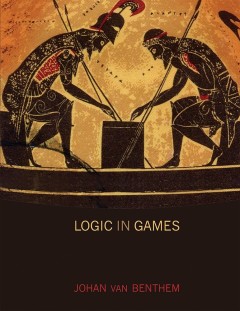
Logic in Games
This book draws on ideas from philosophical logic, computational logic, multi-agent systems, and game theory to offer a comprehensive account of logic and games viewed in two complementary ways. It examines the logic of games: the development of sophisticated modern dynamic logics that model information flow, communication, and interactive structures in games. It also examines logic as games: t…
- Edition
- -
- ISBN/ISSN
- 9780262320290
- Collation
- 1 online resource (xvii, 547 pages) :illustrations
- Series Title
- -
- Call Number
- -

Does Game Theory Work? The Bargaining Challenge
"This volume brings together all of Ken Binmore's influential experimental papers on bargaining along with newly written commentary in which Binmore discusses the underlying game theory and addresses the criticism leveled at it by behavioral economists."--Jacket.OCLC-licensed vendor bibliographic record.
- Edition
- -
- ISBN/ISSN
- 9780262268554
- Collation
- 1 online resource (viii, 409 pages) :illustrations.
- Series Title
- -
- Call Number
- -
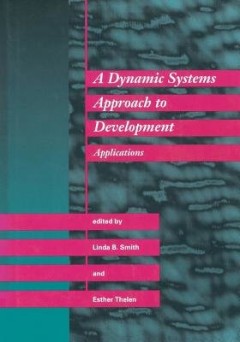
A Dynamic systems approach to development: Applications
"A Bradford book."AnnotationOCLC-licensed vendor bibliographic record.
- Edition
- -
- ISBN/ISSN
- 0585038678
- Collation
- 1 online resource (xviii, 414 pages) :illustrations.
- Series Title
- -
- Call Number
- -
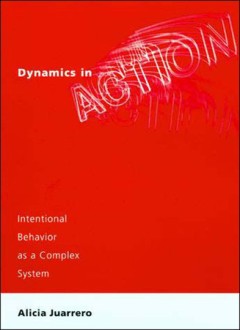
Dynamics in action: Intentional behavior as a complex system
"A Bradford book."OCLC-licensed vendor bibliographic record.
- Edition
- -
- ISBN/ISSN
- 0585176248
- Collation
- 1 online resource (x, 288 pages) :illustrations
- Series Title
- -
- Call Number
- -
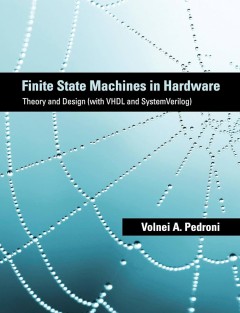
Finite State Machines in Hardware: Theory and Design (with VHDL and SystemVer…
Modern, complex digital systems invariably include hardware-implemented finite state machines. The correct design of such parts is crucial for attaining proper system performance. This book offers detailed, comprehensive coverage of the theory and design for any category of hardware-implemented finite state machines. It describes crucial design problems that lead to incorrect or far from optima…
- Edition
- -
- ISBN/ISSN
- 9780262319096
- Collation
- 1 online resource (x, 337 pages) :illustrations
- Series Title
- -
- Call Number
- -
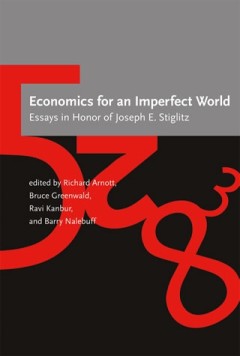
Economics for an imperfect world : Essays in honor of Joseph E. Stiglitz
Essays by leading economic thinkers reflecting the influence of 2001 Nobel Prize winner Joseph E. Stiglitz. Throughout Joseph Stiglitz's long and distinguished career in economics, the focus has been on the real world, with all of its imperfections. His 2001 Nobel Prize recognized his pioneering research in imperfect information; his work in other areas, including macroeconomics, public economi…
- Edition
- -
- ISBN/ISSN
- 9780262267342
- Collation
- 1 online resource (viii, 702 pages) :illustrations
- Series Title
- -
- Call Number
- -

Humanity Enhanced: Genetic Choice and the Challenge for Liberal Democracies
Emerging biotechnologies that manipulate human genetic material have drawn a chorus of objections from politicians, pundits, and scholars. In Humanity Enhanced, Russell Blackford examines them in the context of liberal thought, discussing the public policy issues they raise from legal and political perspectives. Some see the possibility of genetic choice as challenging the values of liberal dem…
- Edition
- -
- ISBN/ISSN
- 0262318539
- Collation
- 1 online resource (231 pages).
- Series Title
- -
- Call Number
- -
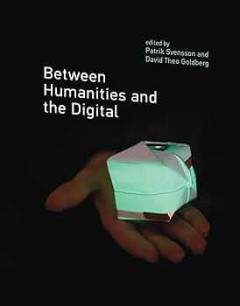
Between Humanities and the Digital
"Like most academic discourses, the Digital Humanities are a conversation in flux. Some would argue that the Digital Humanities are already a well-established field, pointing to the 20-year history of Humanities Computing. Others (me) see a new breed of academic with skills in both technology and the traditional humanities (the Platform Studies and Software Studies series), while others might i…
- Edition
- -
- ISBN/ISSN
- 9780262328364
- Collation
- 1 online resource (xii, 574 pages) :illustrations
- Series Title
- -
- Call Number
- -
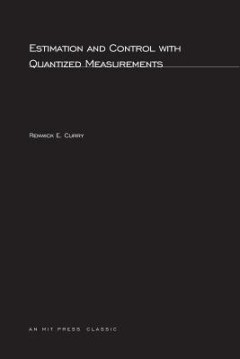
Estimation and Control with Quantized Measurements
In Estimation and Control with Quantized Measurements, Dr. Curry examines the two distinct but related problems of state variable estimation and control when the measurements are quantized. Consideration is limited to discrete-time problems, and emphasis is placed on coarsely quantized measurements and linear, possibly time-varying systems.OCLC-licensed vendor bibliographic record.
- Edition
- -
- ISBN/ISSN
- 9780262255967
- Collation
- 1 online resource (xii, 125 pages) :illustrations.
- Series Title
- -
- Call Number
- -
 Computer Science, Information & General Works
Computer Science, Information & General Works  Philosophy & Psychology
Philosophy & Psychology  Religion
Religion  Social Sciences
Social Sciences  Language
Language  Pure Science
Pure Science  Applied Sciences
Applied Sciences  Art & Recreation
Art & Recreation  Literature
Literature  History & Geography
History & Geography